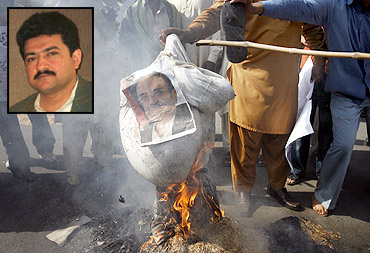
Pakistani journalist Hamid Mir throws light on the threat that Pakistan democracy faces due to corruption and poor governance. In a lecture delivered at the London School of Economics, he talks about some of the biggest problems the country faces -- poverty, illiteracy and then there is Raymond Davis.
Pakistan is no more the most dangerous place in the world because of terror and suicide attacks, which are on the decrease. However, corruption and bad governance are becoming a more serious problem than terrorism.
The Pakistan government is reluctant to implement court orders and this irresponsible behaviour is posing a threat to democracy. If democracy is derailed in Pakistan its very existence may face threat from a new military regime. Military rule has always spelled trouble for Pakistan and it's the military regimes that started wars with India.
...
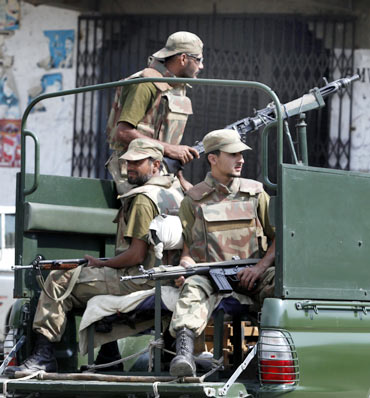
Speaking on the subject 'Can Pakistan defeat extremism?' Mir said the New York Times was the first to declare Pakistan the most dangerous place in the world. on May 30, 2002. Years later, the then United States military advisor David Kilcullen said on March 23, 2009, that Pakistan could collapse in six months, but in fact Pakistan defeated Taliban in Swat Valley, Mir pointed out.
According to Mir, the Pakistani media played a very important role in creating public opinion against suicide bombings. Political parties and the army were also on board for a military operation against the Taliban in the Swat Valley.
There were 3,816 terrorist incidents in 2009 as compared to 3,393 in 2010, which is a decrease by 11 per cent. Suicide attacks have also decreased by 22 per cent. There were 68 suicide attacks in the country in 2010 compared to 87 in 2009.
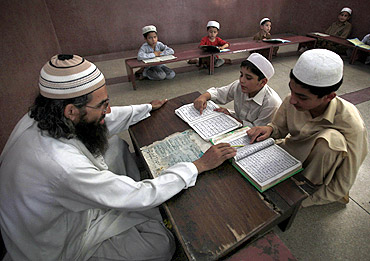
Mir said that extremism is a big problem that Pakistan faces today, but it's not the core problem. "The core problem is poverty, illiteracy, injustice, corruption and bad governance," he added.
Sixty million Pakistanis are living below the poverty line in Pakistan, Pakistan has 20 million children between the age group of five to nine, of whom only half go to schools.
"Most of the government schools are without buildings and teachers. Poor children go to religious schools and rich children go to English-medium schools and this divide is the main source of extremism in Pakistan," said Mir.
He said that international figures show that corruption is increasing in Pakistan and security-monitoring bodies claim that suicide attacks are decreasing. "If corruption will not be controlled it will become a bigger threat than terrorism," he said.
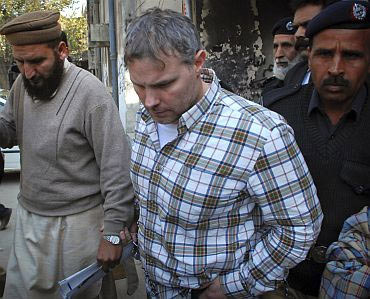
Mir proposed a one-education system, enforcing the rule of law and some political reforms for combating extremism.
He said the killer of former Punjab governor Salman Taseer as well as the killer of two Pakistanis in Lahore, Raymond Davis, must be prosecuted in Pakistan under local laws. If Davis is released then extremist forces will gain more strength, he said.
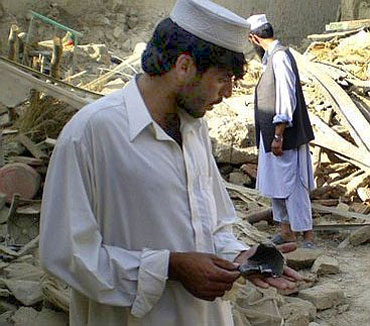
According to the journalist, drone attacks are against the spirit of law. "These attacks have killed less terrorists and more innocents. Drone attacks have radicalised many well-educated youngsters and these attacks are producing more extremism. The Pakistan Army sacrificed more than 3,000 soldiers in the war against terror and sometimes the US drones target our security forces," Mir said.
Most of the Pakistani militants belong to tribal areas, which constitute only three per cent of Pakistan's total area. Only two per cent of the 170 million population of Pakistan comprises tribals, which clearly proves that the whole nation is not facing the cancer of extremism, he said.
Tribal areas need the writ of the State, rule of law, education and health facilities to ensure there is progress, Mir suggested.
Answering a question, he said there are more than 350 illegal entry points along the 2,000-km long Pak-Afghan border. "NATO and US troops have failed to secure the border and without securing the border we cannot stop terrorism in Pakistan and Afghanistan," he added.
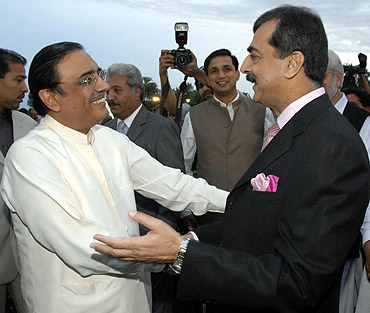
Mir expressed disappointment that the Pakistani government was reluctant to implement Supreme Court orders and according to him, this attitude will only give a boost to anti-democracy forces. The apex court failed to resolve the mystery of missing persons because military and civilian authorities have not cooperated with the superior courts on this issue, he said.
Responding to a question, he said the Pakistan People's Party forced the Pakistan Muslim League-Nawaz to take extreme steps in Punjab, but the PML-N will also lose its credibility by embracing turncoats of the PML-Q.
"The worst democracy is always better than good dictatorship, but Pakistani political leaders should not behave like dictators. They must show respect for the law and if the law becomes a joke, then democracy will also become a joke in Pakistan," he said.
The journalist said the media is free in Pakistan, but it is still facing many pressures from State and non-State actors, adding that 18 journalists were killed in 2010. "Many parts of Baluchistan and FATA are no-go areas for the media, but the media must use its freedom with responsibility to make Pakistan terror-free and with a clean and transparent democracy," he added.
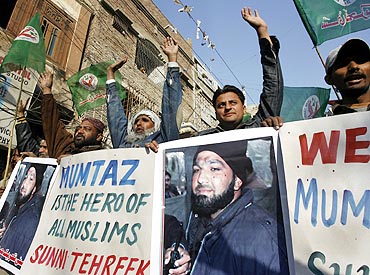
Mir faced many questions on blasphemy laws. He said that supporting the killer of Taseer means discrediting the blasphemy laws. He made it clear that these laws were part of a superior court judgment in 1991 and they were approved by the elected parliament of Pakistan in 1992.
"All the liberal, secular and religious political parties have a consensus on these laws. These laws could be reformed but nobody can replace these laws," he said.
Mir also criticised Libyan dictator Muammar Gaddafi who was also invited for a lecture at the LSE recenty.
The son of the Libyan dictator Saiful Islam Gaddafi is pursuing his PhD from the business school. Many human rights bodies are demanding he be asked to discontinue his course.